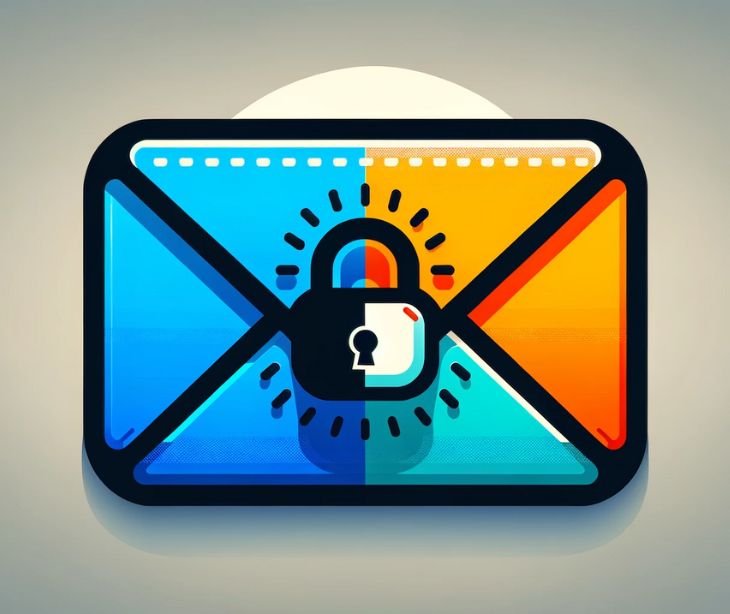3 min read
How Advanced Persistent Threats endanger HIPAA email security
Tshedimoso Makhene
May 23, 2024

APTs are highly sophisticated cyberattacks that infiltrate organizations and remain undetected for extended periods. They pose a significant threat to email security and potentially expose sensitive patient data and cause severe HIPAA compliance breaches.
Understanding Advanced Persistent Threats (APTs)
The National Institute of Standards and Technology for the U.S. Department of Commerce (NIST) defines an advanced persistent threat as "an adversary that possesses sophisticated levels of expertise and significant resources which allow it to create opportunities to achieve its objectives by using multiple attack vectors including, for example, cyber, physical, and deception.”
APTs are characterized by the following key features:
- Long-term and covert: APTs are not hit-and-run attacks. They involve attackers gaining unauthorized access to a network and maintaining that access for an extended period, often without detection. Their objective is to remain undetected while they extract valuable information.
- Well-funded and skilled: APT attackers are usually well-funded and highly skilled. They have the resources to employ the latest hacking techniques and tools, making them a powerful opponent.
- Targeted: APT attacks are carefully targeted, often focusing on specific organizations or individuals. In the healthcare sector, they might aim to steal patient records, intellectual property, or sensitive medical research data.
- Evolving: APTs continuously evolve to avoid detection and maintain access to the target system. They can be challenging to detect using traditional security measures.
Go deeper: What is an advanced persistent threat (APT)?
Implications of APTs for healthcare professionals
According to a Dell SecureWorks report, 96% of healthcare providers experienced a data breach in the past two years, with patient billing and medical records being the most vulnerable. Lack of effective policies and controls, coupled with a lack of dedicated security staff and limited organizational resources, presents unique challenges for IT security professionals. “One of the most insidious types of attacks is Advanced Persistent Threats (APTs), a genre with generally
malicious intent that greatly compounds the risks inherent in EHRs. This type of attack represents an evolving threat to healthcare organizations’ intellectual property, financial assets, and ultimately, their reputations.”
The implications of APTs for healthcare professionals include:
- Patient data breaches: A successful APT attack can lead to the theft of sensitive patient data, including medical records, personal information, and billing details. The exposure of patient data violates patient privacy under the Health Insurance Portability and Accountability Act (HIPAA) privacy rule.
- Legal and regulatory consequences: A data breach caused by an APT attack can result in severe legal and financial consequences for healthcare organizations and their employees.
- Disruption of healthcare services: APT attacks can disrupt healthcare services, affecting patient care, appointments, and the overall functioning of the healthcare facility. This can put lives at risk and negatively impact patient outcomes.
Go deeper: Understanding HIPAA violations and breaches
HIPAA compliant email as a security measure against APTs
To protect patient data and mitigate the risks associated with APTs, healthcare professionals must focus on strengthening email security, as email is a common vector for APT attacks. The following are key strategies to enhance HIPAA email security:
- Encryption: Encryption ensures that only the intended recipient can access the content of the email, making it challenging for APT attackers to intercept or tamper with sensitive information. A HIPAA compliant email solution, like that offered by Paubox, can be used to offer encrypted emails to healthcare organizations.
- Authentication: Implement multi-factor authentication (MFA) to add an extra layer of security to email accounts. MFA requires users to provide two or more forms of verification before gaining access to their email accounts, reducing the risk of unauthorized access.
- Employee training: Healthcare professionals and staff should undergo regular cybersecurity training to recognize phishing emails, suspicious attachments, and other common APT attack vectors.
- Secure email gateways: Utilize secure email gateways to filter out malicious emails and attachments before they reach the user's inbox. These gateways can help identify and block APT-related threats.
- Regular updates and patching: Keep email systems and software up to date with the latest security patches. Outdated software can be a vulnerability that APT attackers exploit.
- Incident response plan: Develop and regularly update an incident response plan that outlines the steps to take in the event of a security breach. A swift response can help contain the damage and minimize the impact of an APT attack.
- Endpoint security: Install and maintain endpoint security solutions on all devices used for email communication. These solutions can detect and block APT-related threats at the device level.
FAQs
Why is healthcare a target for APTs?
Healthcare organizations are prime targets for APTs due to the sensitive nature of the data they hold. This includes patient medical records, personal identification information, and financial information, which are valuable for identity theft, insurance fraud, and other malicious activities.
What are the signs of an APT in a healthcare system?
Signs of an APT include:
- Unusual network activity
- Unexplained data transfers
- Frequent malware alerts
- Irregular user behavior
- Presence of unknown files or applications
How does the HIPAA Privacy Rule prevent data breaches?
The HIPAA Privacy Rule establishes national standards to protect medical records and personal health information, requiring covered entities and business associates to implement safeguards, limit access to authorized personnel, and enforce strict penalties for non-compliance.
Subscribe to Paubox Weekly
Every Friday we'll bring you the most important news from Paubox. Our aim is to make you smarter, faster.




